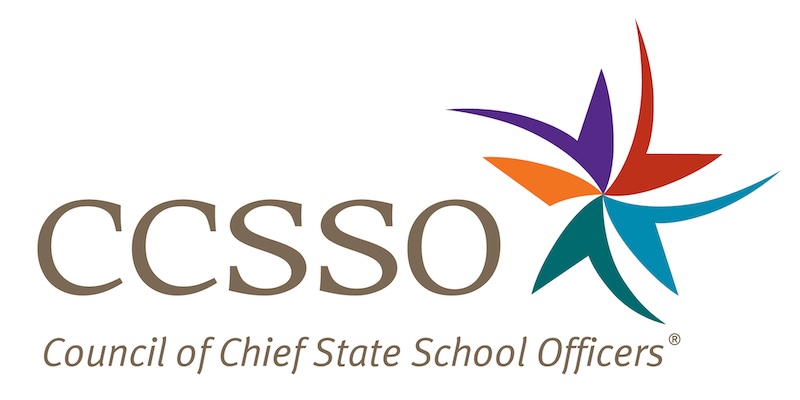Washington Superintendent Chris Reykdal Assumes CCSSO Board Presidency
Washington, D.C. –– The Council of Chief State School Officers (CCSSO) today announced its 2025-26 Board of Directors following elections at the 2025 Annual Policy Forum in Houston, Texas.
Washington Superintendent Chris Reykdal will assume his term as president of the CCSSO Board of Directors. Connecticut Commissioner Charlene Russell-Tucker will assume the role of president-elect and Alabama Superintendent Eric Mackey will become past president. CCSSO members reelected current Board members Rhode Island Commissioner Angélica Infante-Green and Illinois Superintendent Tony Sanders to new terms and elected West Virginia Superintendent Michele Blatt to serve on the Board. Continuing their terms on the Board are Indiana Secretary Katie Jenner, Wisconsin Superintendent Jill Underly and Georgia Superintendent Richard Woods.
“I’m honored to be selected by my peers to serve as the president of CCSSO,” said Reykdal. “This is a critical moment for public education. Young people are navigating a world that is changing rapidly, including the large-scale impacts that are coming from artificial intelligence. To best serve our students and our nation, education leaders will have to double down on learning content and strategies that focus on quantitative reasoning, data literacy and much more. While America’s literacy rates rank among the world’s best, our skills in mathematics are average.”
“Our schools must reenvision the way we deliver instruction, the learning pathways we provide and what it looks like when students graduate from our schools fully prepared for their next step in today’s world,” Reykdal continued. “Across the country, state education leaders are working together in bipartisan ways to focus on these and other key issues facing our students. We simply must move beyond overly simplistic ways of evaluating student learning and instead shift our thinking to the multiple ways students demonstrate that they are on track to achieve success in the pathway they choose. I look forward to a year of innovation with national unity behind the belief that states are best equipped to lead teaching, student learning and evaluation and overall transformation.”
Reelected and newly elected Board members will assume office at the conclusion of the Annual Policy Forum on November 14 and join current Board members continuing to serve their terms.
“I am grateful to Alabama Superintendent Eric Mackey for his leadership as Board president for the past year and his pivotal role in helping move our work forward,” said CCSSO Chief Executive Officer Carissa Moffat Miller. “I look forward to continuing our progress with Superintendent Chris Reykdal, a strong advocate for students in Washington and for advancing academic outcomes for all students. I congratulate him and Board members elected to new terms.”
CCSSO’s Board of Directors manages the overall business affairs of the Council and is the governing body of the organization. The Board is composed of the president, the president-elect, the past president and six directors elected by the CCSSO membership. CCSSO’s Board of Directors for the upcoming year is:
President: Superintendent Chris Reykdal, Washington
President-Elect: Commissioner Charlene Russell-Tucker, Connecticut
Past President: Superintendent Eric Mackey, Alabama
Board Member: Superintendent Michele Blatt, West Virginia
Board Member: Commissioner Angélica Infante-Green, Rhode Island
Board Member: Secretary Katie Jenner, Indiana
Board Member: Superintendent Tony Sanders, Illinois
Board Member: Superintendent Jill Underly, Wisconsin
Board Member: Superintendent Richard Woods, Georgia
###
The Council of Chief State School Officers (CCSSO) is a nonpartisan, nationwide, nonprofit organization of public officials who head departments of elementary and secondary education in the states, the District of Columbia, the Department of Defense Education Activity, Bureau of Indian Education, and five U.S. extra-state jurisdictions. CCSSO provides leadership, advocacy, and technical assistance on major educational issues. The Council seeks member consensus on major educational issues and expresses their views to civic and professional organizations, federal agencies, Congress, and the public.
